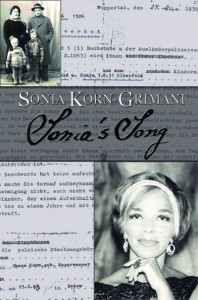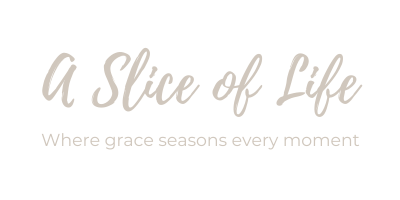I’m pleased to welcome memoirist and singer Sonia Korn today. At the age of eight, Sonia was declared an enemy of the German State. She and her family were given a grim option: find a way to disappear, or be rounded up and sent to certain death. Sonia’s Song is the story of a little girl who rose from war’s ashes to sing songs of hope and love world-wide.
In honor of Sonia’s visit we’re giving away a downloadable gift bag consisting of an ebook copy of Sonia’s Song and an iTunes download of Sonia’s CD “Chansons de ma Vie: Songs of Love from Around the World”. Simply leave a comment to be entered in the drawing. I’ll randomly select the winner on Friday.
Turning Memories into Story
I grew up in pre-war Germany, and escaped to Belgium just before Belgium fell in May 1940. My family and I were hunted and we changed address, identities, habits, until I was placed in an orphanage under an assumed identity in 1942. For many years after the war, I remained silent, feeling my story unworthy of attention, merely because I was alive to tell it. And, in truth, a sense of survivor’s guilt contributed to my silence. However, as I grew older, I realized that I am a survivor of a different sort, with a different story to tell. My story, too, has value and needs to be told.
When I wrote the first edition, I was the same age my mother was when she died. I wanted to record her story and my story for my children, and for my three beautiful grandchildren, so that they will know my and remember my story.
But I also had a need to write that was even more pressing. I had floods of memories from my childhood that were bottled up inside me, memories that even after 70 years later kept me up at night, haunting my dreams and feeding my nightmares. I felt that if I could write my memories down, I would no longer be troubled by the worst of them, though I knew that it would be a very painful process.
As authors we are often told that we should write about what we know. But when you are writing a work that centers on your childhood, how does one sort through the memories to create a cohesive narrative, one other people would want to read? I had a very personal story, but I also felt that it could show people a unique insight into this dark period of history. For a book that centers around a war, there are as many moments of kindness, and forgiveness and bravery as there is brutality and cruelty.
I found photo albums, filled with old photos that my mother collected and saved—I don’t know how she kept all those photos, with the sheer number of times we were relocated. Some were from her family, and some from my father’s, all of whom except for two were lost.
I found a picture of my brother on his first day of primary school, looking apprehensive, holding a Zuckertute, a cherished symbol among German children starting school. I found a picture taken less than a year later of him and his friend standing in front of the school doors, now closed to him and me because we were Jewish.
So many photos, and with each one a flood of memories fill my mind. I forced myself in a room, and wrote. I wrote fragments of memories, conversations, anything that I could remember. I tried to be as careful as I could, to write down everything as clearly as my recollections allowed. I think the most important thing for a writer to remember is to be patient with yourself; be gentle, and have faith—in yourself and in the process. Give it time. Our minds are incredible wonders, we are each capable of storing huge amounts of information. Even your conscious mind can’t keep track of the details that are stored in your brain, just waiting to come back up to the surface, and the mind is capable of trillions of thoughts at any one instant.
For me, I found the process of writing my memoir being very much like creating a sculpture that you can build up and carve down and build up again. There is a time for writing, a time for paring it down, and in a way it’s good to keep those two parts separate so you don’t get over critical and stop yourself before you begin. The process will be a painful one, but hopefully—as it was in my case—cathartic, and what you write and polish will be inspiring to the people who read it.
 Sonia Korn-Grimani earned her doctorate in French literature and the teaching of foreign languages, and directed a multi-cultural language program at UNESCO. With her husband John, and their children Anthony and Renee, Sonia traveled and lived all over the world. She taught foreign languages at the university level, and performed frequently to the delight of audiences worldwide. In her album Cantos al Amor, Sonia sings in 16 languages.
Sonia Korn-Grimani earned her doctorate in French literature and the teaching of foreign languages, and directed a multi-cultural language program at UNESCO. With her husband John, and their children Anthony and Renee, Sonia traveled and lived all over the world. She taught foreign languages at the university level, and performed frequently to the delight of audiences worldwide. In her album Cantos al Amor, Sonia sings in 16 languages.
In 1989, Dr. Korn-Grimani was knighted Chevalier dans l’Ordre des Palmes Académiques, and in 1996 she was decorated Officier des Palmes Académiques. These decorations were awarded in recognition of her lifelong dedication to and promotion of French culture and language.
Sonia continues to sing regularly at UNESCO events inFrance, and is also frequently invited to share her Holocaust experiences as a guest speaker in high schools, universities, synagogues and churches.


“For me, I found the process of writing my memoir being very much like creating a sculpture that you can build up and carve down and build up again. There is a time for writing, a time for paring it down, and in a way it’s good to keep those two parts separate so you don’t get over critical and stop yourself before you begin.” — Sonia, I completely agree. This is so true, and a great thing for memoirists to keep in mind. Just write. You can edit, cut, change, mold, shape later. Thank you for sharing your extraordinary story. — Laura
I have started writing what seems to be a million times and always
just get so far–am going to try to use your thoughts and just write and then weed it out—-
I honor anyone who can take their own story and make it feel like outs.
Meant to say make their story feel like Ours.–Thanks.
Thanks, Linda, for sharing this wonderful woman with us!
Sonia, I relate so much to what you say about not feeling like my story has value. It has occurred to me that I think everyone else’s story has value but my own. God is working on me with this. Thank you for sharing that same struggle.
I have downloaded a sample of Sonia’s Song to my Kindle, so I won’t forget about it. I have always been fascinated by the stories of survival from the Holocaust. I can remember reading about Anne Frank in a magazine in a doctor’s office waiting room when I was 8 or 9 years old. I think that is when my interest and horror – if the truth be told – started. For many years I had recurring nightmares of being in hiding. Yet I am not Jewish nor did I even know a Jewish person for many years. Linda, thanks for sharing this story.
Thank you Sonia for stopping by today and sharing some of your writer’s journey with us. I liked your comment about finding the “process of writing my memoir being very much like creating a sculpture that you can build up and carve down and build up again. There is a time for writing, a time for paring it down, and in a way it’s good to keep those two parts separate so you don’t get over critical and stop yourself before you begin.” It’s so important to silence that inner critic so that we’re able to write our stories, unedited and raw at first. We must do this before we’re able to stepping back and objectively consider circumstances and people, and this is where we’re often able to find nuggets of truth that might otherwise have gone undetected that take us to a place of peace and healing. I’m delighted to share you and your store with everyone!
Sonia, thank you for all you’ve done in your life, simply because you are a survivor. Without women like you, so many would have not survived because of those, you included, who have gone before. Your story is surely a painful one, and like you I’ve often wondered if my story was worth telling. However, in writing the little I have written, I’ve found healing and comfort and in fact knowledge about others who are an important part of my story. Writing is so much more than just print on paper or letters on the computer screen. Again, thank you!
Linda, thank you as well for hosting Sonia — interesting post and a book I look forward to reading.
Dear Sonia and Linda, this posting so inspired me to begin to work steadily on the Bronze-Age-Greece novel that I’ve worked on off and on since 1992. Twenty years and still only 1/3 of it in rough draft.
These lines especially inspired me: “I think the most important thing for a writer to remember is to be patient with yourself; be gentle, and have faith—in yourself and in the process. Give it time.” Now it’s time to begin with a goal of finishing.
Linda, I don’t have an e-reader so you needn’t insert my name in your drawing. But having the drawing is such a lovely thing is do. Peace.